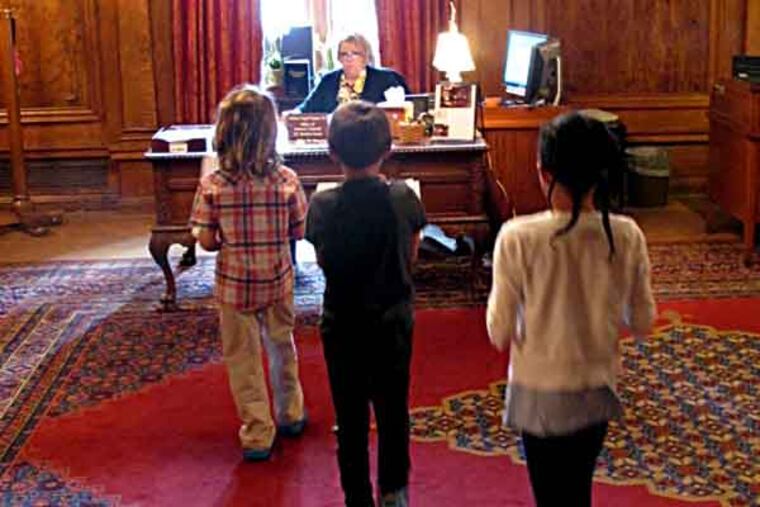Keep focus on students
There has been an understandable amount of attention recently on the School District of Philadelphia's budget shortfall, particularly the commonwealth's role in addressing the current challenges. When I proposed a combination of solutions to address this issue in June, I stated then that our focus must remain on long-term academic and operational excellence for the students of Philadelphia. That remains just as true today.

By Tom Corbett
There has been an understandable amount of attention recently on the School District of Philadelphia's budget shortfall, particularly the commonwealth's role in addressing the current challenges. When I proposed a combination of solutions to address this issue in June, I stated then that our focus must remain on long-term academic and operational excellence for the students of Philadelphia. That remains just as true today.
This year, Pennsylvania taxpayers are slated to invest more than $1.3 billion in the district. Before any additional state investments would be made, the law and my direction were clear:
It was critical that the fiscal savings and academic reforms that Superintendent William R. Hite Jr. and the School Reform Commission (SRC) have said are essential to the long-term sustainability and viability of the district had begun to be put in place. The reforms they are pursuing are critical to the district's ability to better manage costs, ensuring that any new money is spent on items that will improve the quality of education for students.
In addition to new programs and initiatives designed to increase the range and quality of educational options available to students, the district has now taken a student-focused approach to the staff assignment and transfer process, consistent with its priorities for educational improvement and operational control. The district is also implementing a new statewide educator-evaluator instrument to ensure that its principals are identifying the strengths and areas of improvement for all teaching staff, which will facilitate improved teaching and learning in every school.
Most importantly with respect to fiscal stability, the district has a balanced budget and five-year plan, and it is now maintaining expenditure levels that do not exceed available resources. Based on these and other steps the district has taken this year, I directed the secretary of education to release $45 million in one-time state funds to Philadelphia for use by the district this school year.
Additional funding is only part of the solution. Reform and progress require much more than cash. They require the will and hard work of all parties to accomplish the goals we want for Philadelphia's students.
Chief among the tasks left to do is a new collective bargaining agreement with the Philadelphia Federation of Teachers that provides savings and enacts meaningful reform, as set out by the SRC and Hite. In order to balance its budget, the district originally sought new revenue from the city and commonwealth, as well as savings from its labor partners. Mayor Nutter stepped up and committed new revenue, allowing the district to reverse earlier cuts. Other district employee groups have already contributed concessions to close the budget gap, including the district's blue-collar workers, who agreed to pay cuts and work-rule changes, as well as to reductions in the cost of their benefits. All that now stands between students getting the resources they deserve this academic year is the teachers' union agreeing to meaningful concessions. It is time for the leadership of the union to step up and do its part.
The time has also come for City Council President Darrell Clarke and his colleagues to do their part. By acting to extend the sales tax, they can not only provide additional funding to aid the district in meeting its financial obligations this school year, but they can also put in place another key piece of the district's long-term financial sustainability. We must work to ensure that the district is not in this position year after year, and that it provides a quality education; these critical steps are the best way for us to do so.
The superintendent and the SRC, which has been ably led by Pedro Ramos, are working to build a system of public schools that has adequate resources and the policies in place for students and teachers to thrive. They are taking a fresh view of how best to make certain the Philadelphia schools will be solvent, efficient, and effective in providing a world-class education to the children of our nation's most historic city. As governor, I will continue to support this critical work.